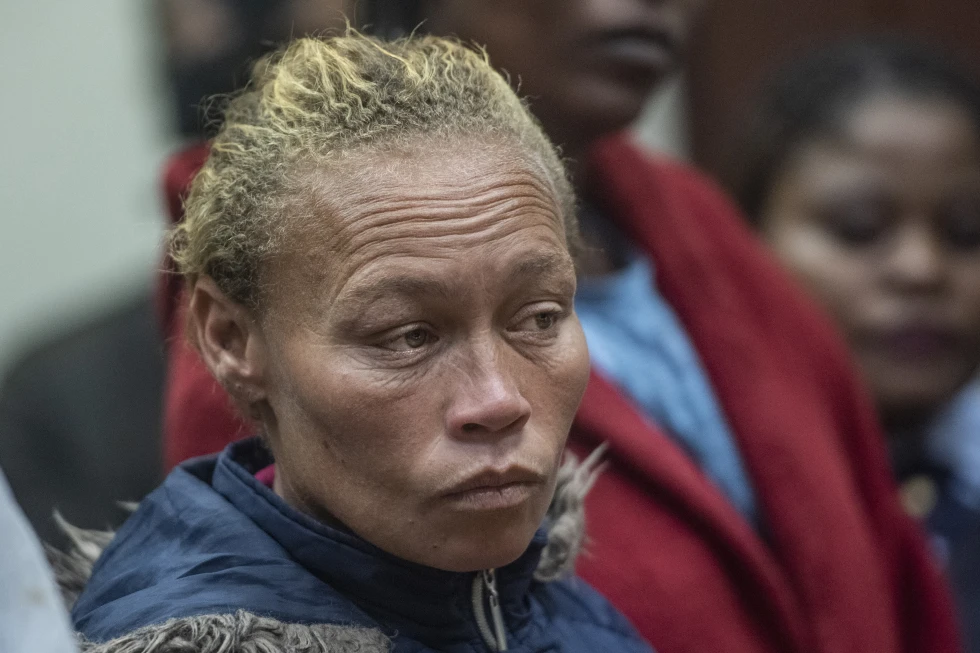CAPE TOWN, South Africa — A South African woman was sentenced to life in prison Thursday for selling her 6-year-old daughter, in a harrowing child trafficking case that gripped the nation and exposed the dark undercurrents of exploitation and ritual abuse in vulnerable communities.

Kelly Smith, 34, was convicted earlier this month on human trafficking and kidnapping charges, alongside her boyfriend Jacquen Appollis and their friend Steveno van Rhyn. Each received life sentences for trafficking and an additional 10 years for kidnapping. The sentencing took place in Saldanha Bay, a coastal town north of Cape Town, where the court proceedings were moved to a sports center to allow public access due to intense community interest.
The young girl, Joshlin Smith, vanished in February 2024, triggering a nationwide manhunt. Despite extensive searches in sand dunes and informal settlements near the family’s home, she remains missing. Her smiling face, with pigtails, became the haunting symbol of a case that shocked even seasoned law enforcement officers.
Initially, Smith was viewed as a victim, with neighbors and volunteers rallying to support her as police combed the West Coast region. But public sympathy quickly turned to outrage when she was arrested and charged in connection with her daughter’s disappearance. Testimony during the trial revealed that Smith confessed to a friend that she and the two men sold Joshlin for approximately $1,000 to a traditional healer seeking a child for ritualistic purposes involving body parts.
Though Judge Nathan Erasmus did not conclusively identify the buyer or the ultimate fate of the child, the court determined that Joshlin was trafficked for slavery or slavery-like practices. The verdict was delivered in front of dozens of community members, many of whom were visibly emotional during the proceedings.
“This court cannot ignore the horror of a mother conspiring in the sale of her own child,” said Erasmus, condemning the trio’s actions as “a calculated betrayal of innocence for profit.”
The case has reignited fears around the trafficking of children for ritualistic purposes, a persistent issue in parts of southern Africa. Advocacy groups have long warned about underground markets tied to traditional beliefs, where children are abducted and trafficked for muti — the practice of using human body parts in witchcraft or supposed healing.
Local residents in Saldanha Bay, a struggling fishing town approximately 120 kilometers (75 miles) north of Cape Town, expressed heartbreak and disbelief. Many had joined the search in February, unaware they were aiding a woman later found guilty of orchestrating her daughter’s disappearance.
While the harsh sentencing was welcomed by many, Joshlin’s whereabouts remain unknown, and her body has not been recovered. The continued absence of closure has only deepened the anguish of a community desperate for answers.
South African authorities have faced increasing scrutiny for their response to child trafficking and exploitation. Rights groups argue that systemic poverty, weak enforcement, and superstitious practices have created fertile ground for traffickers, especially in rural and economically depressed regions.
The Department of Social Development released a statement following the sentencing, calling the case “a tragic reminder of the urgent need to strengthen child protection services and public awareness.”
As South Africa grapples with rising concerns over missing children and ritual-related crimes, Joshlin’s case stands as one of the most disturbing examples of familial betrayal and the consequences of unchecked trafficking networks.



